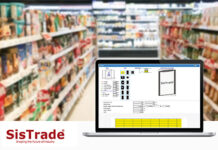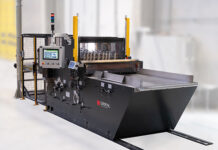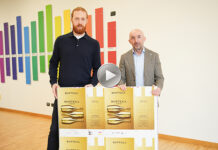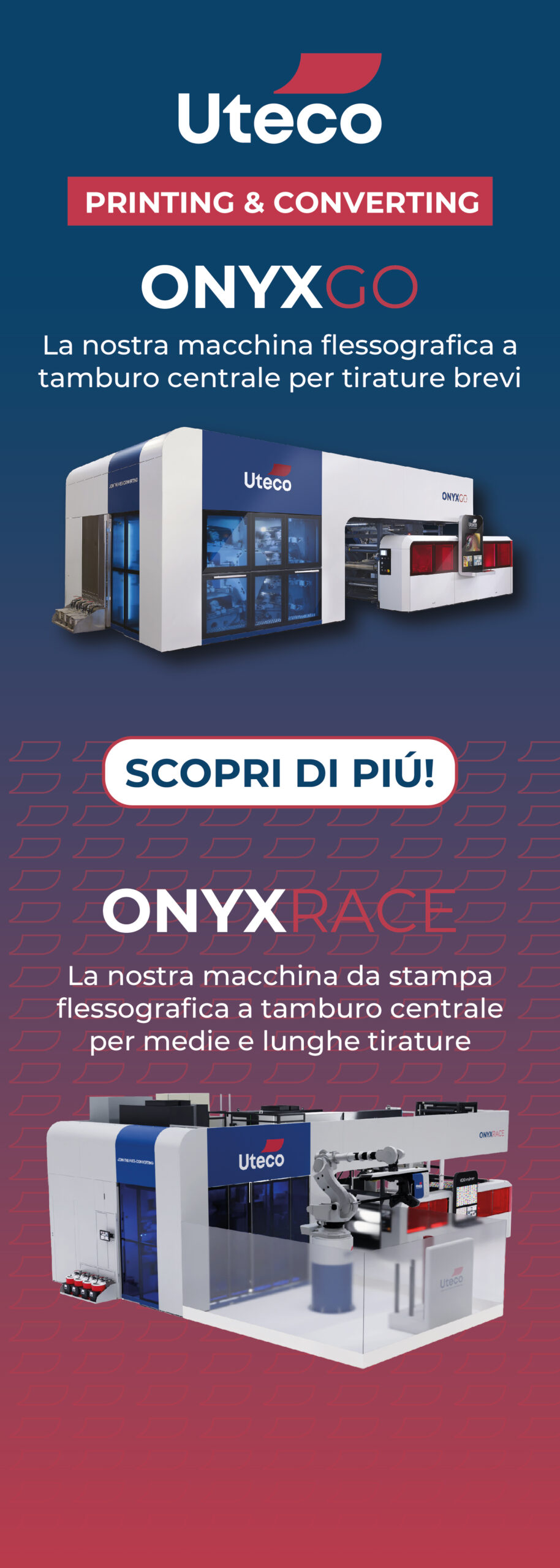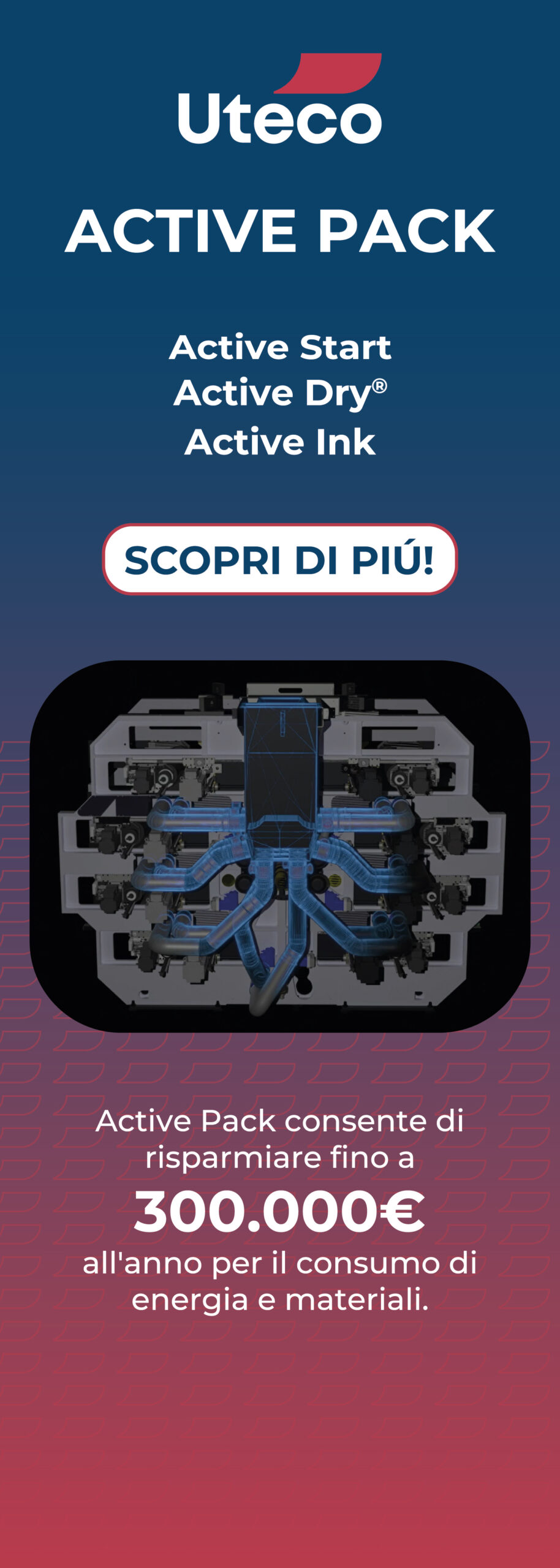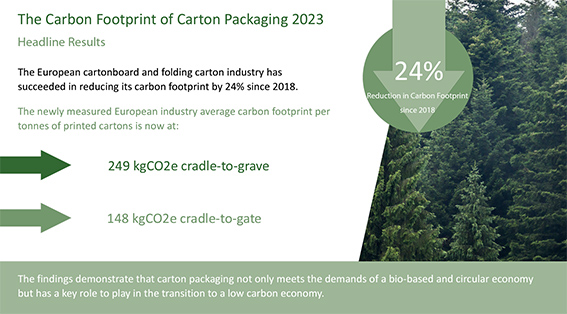
Pro Carton, the European association for carton and cartonboard manufacturers, has today revealed authoritative, new research proving that the European carton and cartonboard industry has succeeded in reducing its carbon footprint by 24% since 2018. The findings demonstrate that carton packaging not only meets the demands of a bio-based and circular economy but has a key role to play in the transition to a low carbon economy. The newly measured European industry average carbon footprint of cartons is now at 249 kgCO2e cradle-to-grave and 148 kgCO2e cradle-to-gate per tonne of cartons.
The Carbon Footprint of Carton Packaging 2023 study, carried out by RISE (Research Institutes of Sweden) Bioeconomy and Health Unit for Pro Carton tracked both the cradle-to-grave and cradle-togate carbon impact of cartonboard from January to December 2021. It took into account fossil and biogenic greenhouse gas (GHG) emissions and removals, plus emissions from direct land use change (dLUC).
Fossil GHG emissions arise from non-renewable sources such as fossil fuels, while biogenic emissions are the result of the combustion of biofuels and the degradation of bio-based products. Biogenic removals refer to CO2 uptake from the atmosphere through photosynthesis during biomass growth. For instance, in forest management as a source for paper fibre.
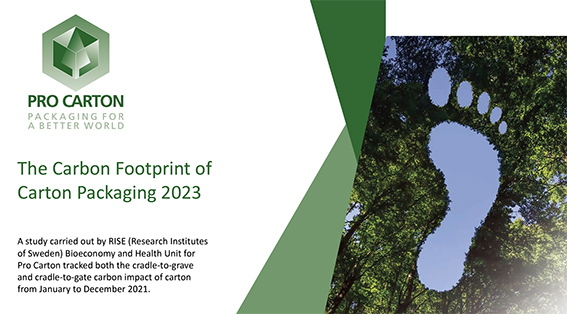
The double-digit reduction of the cradle-to-grave carbon footprint to 249kg C02, and the cradle-to-gate carbon impact of 148kg C02 equivalents per tonne of cartons have been achieved by improving resource efficiency during the converting process. It has also been bolstered by significant investments in energy efficiency and renewable energy sources at the cartonboard mills and converting operations since carbon emissions were last measured in 2018. The cradle-to-gate calculation is important because it corresponds to the impact the industry has direct control over – until the product leaves the converting plants.
The results are significant because they underline the circularity leadership of cartonboard, backed by science-based studies – something that is particularly important to cartonboard and folding carton producers and the brands and retailers they supply as consumers place more emphasis on the sustainability of all products they buy.
Horst Bittermann, Director General, Pro Carton said that the results are also important in helping the industry to benchmark itself: “Our members can compare their own data against industry averages and evaluate how their tremendous efforts to further improve energy efficiency, to use renewable energy sources and to upgrade internal processes to the latest state-of-the-art, have paid off. The cradle-togate value of 148 kgCO2 is a substantial improvement on our way to a low or even carbon neutral, biobased economy and reflects process improvements and the investments taken by the industry.”
“Of course, the industry cannot succeed in isolation. It is important that the new EU PPWR (Packaging and Packaging Waste Regulation) must support us with ambitious collection targets in each and every EU country. The collection especially from households is in the hand of municipalities – we can only recycle what is collected,” he stresses.

Click here to download a copy of The Carbon Footprint of Carton Packaging 2023 study. visit.







